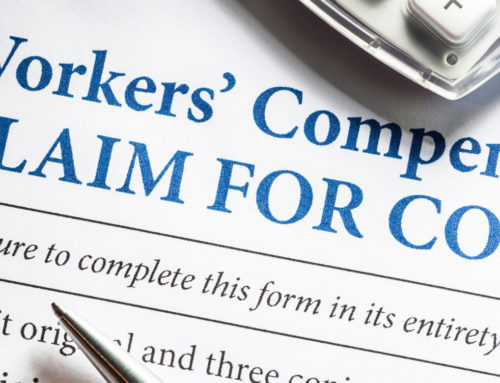When getting a new job, one of the most important considerations is how much you will be paid. Several factors will determine the compensation rate that will apply to you, such as your age, type of occupation, and enrollment in particular employment programs. This article will discuss apprentice and minor compensation rates, what apprentice and minor compensation rates are, the differences between them, and Minnesota’s current base compensation rates.
Experienced Work Comp Representation In Minnesota
If you are experiencing workers’ compensation issues at your job, it can be challenging to know what you can do. It can often seem like the employer has absolute authority regarding issues you are experiencing at work. However, if you have an employment dispute, a work comp attorney might be able to help. The 612-INJURED workers’ comp lawyers are ready to assist you with your work injury issue and help you get the outcome you deserve. To learn more or schedule your initial case consultation, call or text us at (612) 465-8733.
Apprentice And Minor Differences
Before discussing the differences between the actual compensation rates between apprentices and minors, it is essential to understand the differences between an apprentice and a minor. These differences influence how each is paid in Minnesota.
Minor
Under Minnesota, anyone under the age of 18 is a minor. Concerning minor employment, anyone older than 14 and under 18 is considered a minor employee; no person younger than 14 may be legally employed. However, even if the worker is 14 years old, other restrictions affect their ability to work. For example, minors 15 and younger cannot start work before 7 a.m. or work after 9 p.m. Additionally, minors under 16 cannot work more than 40 hours a week or 8 hours a day. Minors may also not work in hazardous jobs or jobs with dangerous conditions like driving passenger-carrying vehicles or operating machinery.
After turning 16, minor employees may not work after 11:00 PM on school nights or before 5:00 AM on school days.
Apprentice
According to Minnesota law, an apprentice is a “worker who is at least 16 years of age who is employed to learn an apprenticeable trade or occupation in a registered apprenticeship program.” The apprenticeship is a training model which provides active income and classroom instruction in a specific career area. Apprenticeships vary in length depending on the apprenticeship occupation. Once you have completed your apprenticeship, you will have credentials that will assist you with finding a job in that career. However, even if you are considered an apprentice, teens younger than 18 may not be employed in construction or building projects.
Minor And Apprentice Compensation Rates
The difference between minor and apprentice compensation rates involves the differences in employment types. Minors generally are not working in a focuses ond field to gain knowledge for future employment. Additionally, minors under the age of 16 have further employment restrictions and cannot be apprentices under Minnesota law. On the other hand, apprentices are actively working and learning to obtain experience in a specific industry for future employment.
Minor
For general pay, compensation rates for minors are based on the minimum wage. Depending on the type of employer, the minimum wage rate will vary. For example, if you are working at a small employer business—a business that does less than $500,000 annually—the pay rate is $8.42 per hour. However, if you work with a large employer—an employer doing more than $500,000 worth of business each year—the minimum pay rate is $10.33. To learn more about minor or minimum wage rates, visit the Minnesota Department of Labor and Industry’s website here.
While Minnesota provides the minimum wage as a basis for minor compensation rates, there is no limitation barring employers from paying minor employees more than that rate.
Regarding workers’ compensation, minors’ rates are computed based on the max comp rate at the time of the injury and there must be a permanent total disability. The maximum compensation rate is based on 102% of what the statewide average weekly wage was the year preceding the date of injury.
Apprentice
For general purposes of pay in Minnesota, apprentice compensation rates cannot be lower than the minimum wage in Minnesota. However, these rates are generally higher than the minimum rate. Whatever the rate you will be paid as an apprentice will be set by the particular program in which you are training. ZipRecruiter, using data from ADP, a provider of employee payroll data, reports the average apprenticeship wage is $12 an hour. However, depending on the type of apprenticeship, salary or hourly rates may vary. To learn more about apprenticeship wages, click the link to see the current rates in Minnesota.
Regarding workers’ compensation, under Minn. Stat. 176.101, subd. 6, an apprentice is entitled to the maximum compensation rate when they have suffered permanent total or permanent partial disability. Like the rate for minors, this maximum compensation rate is based on 102% of what the statewide average weekly wage was the year preceding the date of injury, though injuries prior to Oct 2013 are under a different standard.
Hiring an Experienced Workers’ Compensation Lawyer in Minnesota
The rules and regulations involved with employment can be challenging to understand. When you have questions or need help with your work comp issues, contact 612-INJURED. The 612-INJURED workers’ compensation lawyers are ready to assist you with your work injury issues today. To learn more or schedule your initial case consultation, call or text us at (612) 465-8733 for a free consultation.













